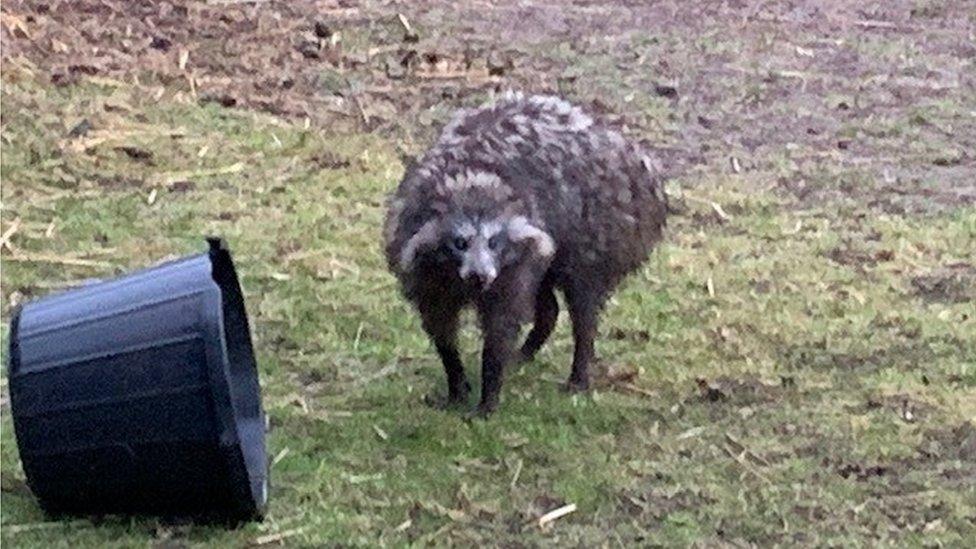Raccoon dog 'regrettably and avoidably destroyed', says wildlife body
- Published
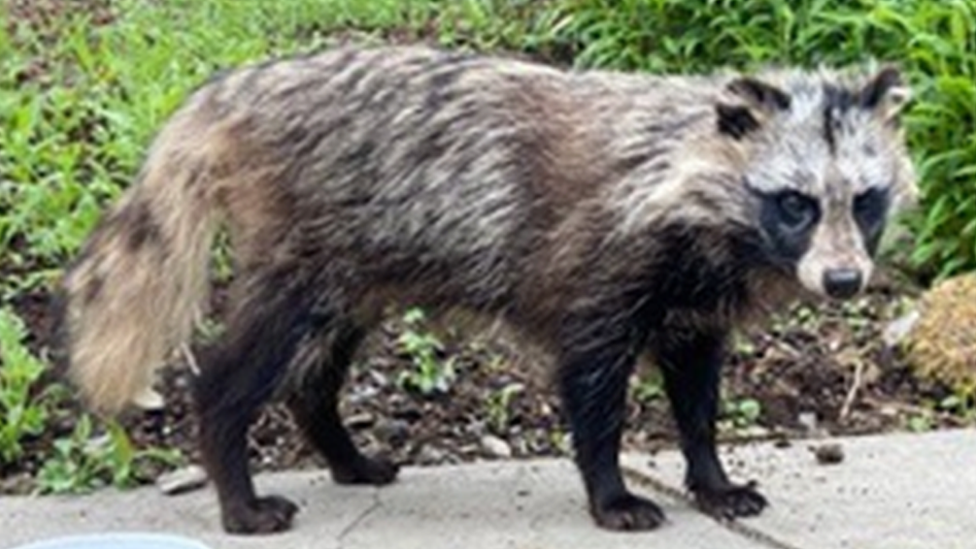
Humanely putting this raccoon dog to sleep was "the most appropriate control option", says the Welsh Government
A captured raccoon dog should have been taken to a sanctuary not killed, a wildlife organisation has said.
BeastWatch UK said it was "avoidably destroyed" as it could have helped with "access to many sanctuary places".
RSPCA Cymru said it had "hoped the raccoon dog could be safely captured and transferred to a suitable secure facility".
The Welsh Government said "putting the raccoon dog to sleep" was "in the best interest of this individual animal".
The fox-like mammal - also known as a tanuki - was caught in a rural location near Pumsaint, a village half way between Lampeter and Llanwrda in Carmarthenshire.
BeastWatch UK, which describes itself as "the country's only nationwide volunteer run, exotic animal search and rescue organisation", said it attempted to contact Environment Minister Lesley Griffiths upon hearing of the loose animal as it "had a response team ready for deployment".
Mike Potts, secretary of BeastWatch UK, said it has "access to many sanctuary places across the country" and does not "resort to unnecessary euthanasia".
A Welsh Government spokeswoman confirmed it was approached by BeastWatch "but the raccoon dog had been humanely put to sleep before this was received".
She added that "any other course of action, such as keeping it in captivity, is not a realistic option on animal welfare grounds".
Mr Potts keeps raccoon dogs as pets and says they are "in no way any more potentially dangerous (nor more smelly) than any domestic dog".

Raccoon dogs
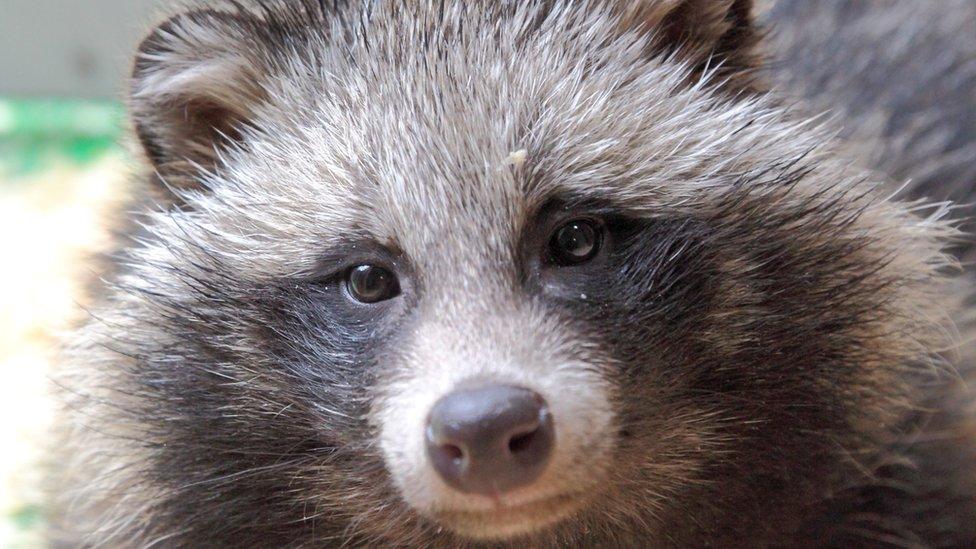
The furry appearance of the raccoon dog persuaded some people to try them as exotic pets
Raccoon dogs stay with a partner for life
They are known to feed on amphibians and ground-nesting birds, and are being culled in some countries due to the risk they pose to native wildlife
Native to the forests of eastern Siberia, northern China, north Vietnam, Korea and Japan
Omnivores that feed on insects, rodents, amphibians, birds, fish, molluscs and carrion
The RSPCA "strongly" discourages people from keeping them as pets
Source: RSPCA, external

In February 2019 the European Union added raccoon dogs to a List of Invasive Alien Species of Union Concern, external, which seeks to control populations deemed to be harmful to native wildlife.
Existing owners can keep the animals, but further breeding or sale is banned.
The Welsh Government spokeswoman said: "There are strict legal restrictions on keeping, selling, rehoming, breeding and releasing raccoon dogs as they threaten our native wildlife.
"Raccoon dogs are wild animals and from a welfare point of view they range over large distances, live in groups and have complex needs and are therefore not suited to life in captivity.
"After careful consideration, humanely putting the raccoon dog to sleep was considered the most appropriate control option and in the best interest of this individual animal in these circumstances."

BeastWatch UK contacted Environment Minister Lesley Griffiths but the raccoon dog had already been put to sleep
An RSPCA spokesperson said: "This sad case is a reminder why these animals are not suitable pets and, when they are kept, why they must be kept securely."
Two raccoon dogs that escaped near Esgairdawe, Carmarthenshire in August 2019 have never been captured. Natural Resources Wales says it has no evidence that they have died.
A spokesperson said: "Natural Resources Wales would encourage members of the public to report any sightings of a racoon dog in the wild to our incidents line on 03000 65 3000."
- Published9 July 2020

- Published7 July 2020
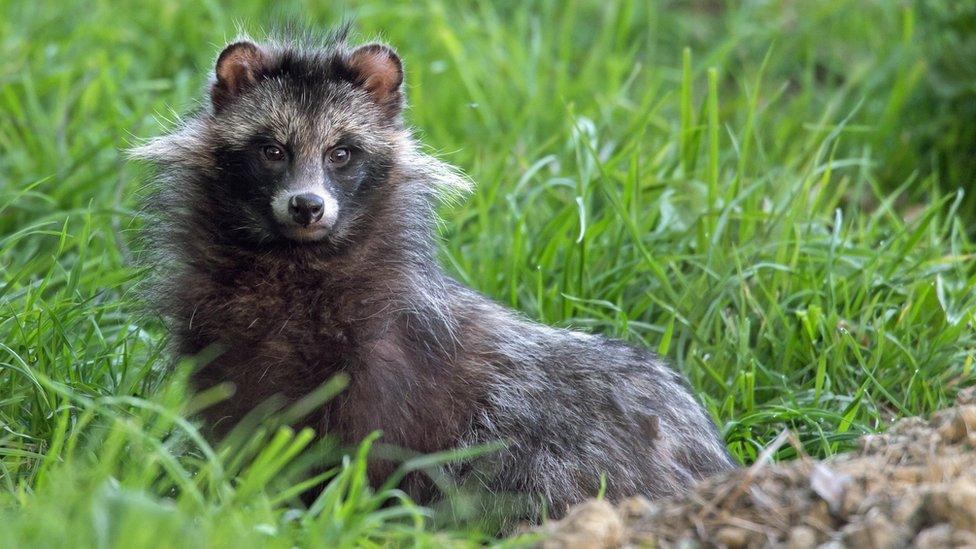
- Published7 May 2016
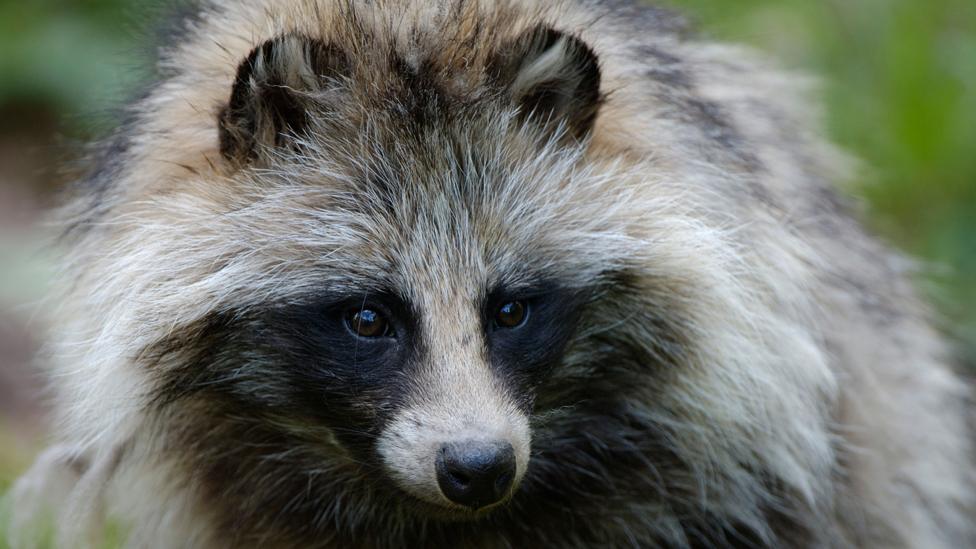
- Published3 April 2020
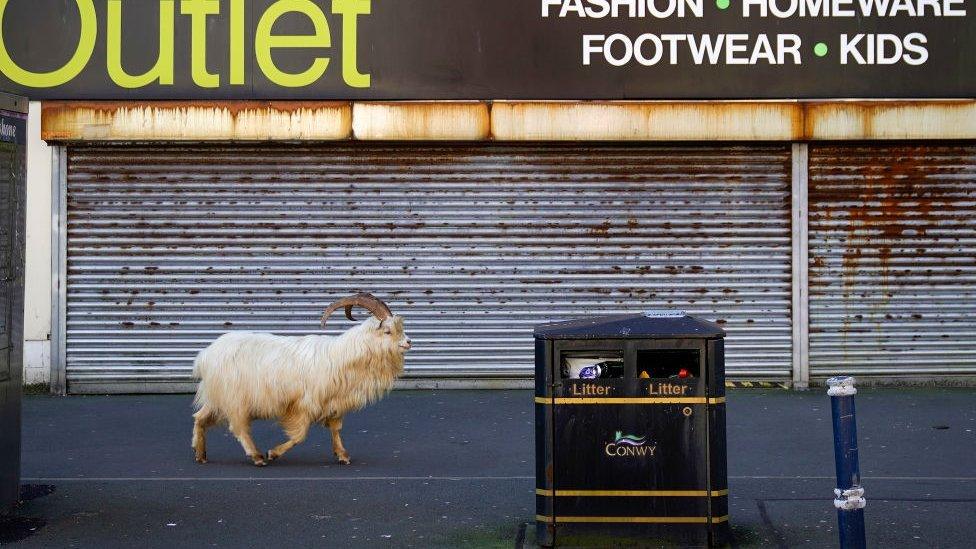
- Published25 January 2020
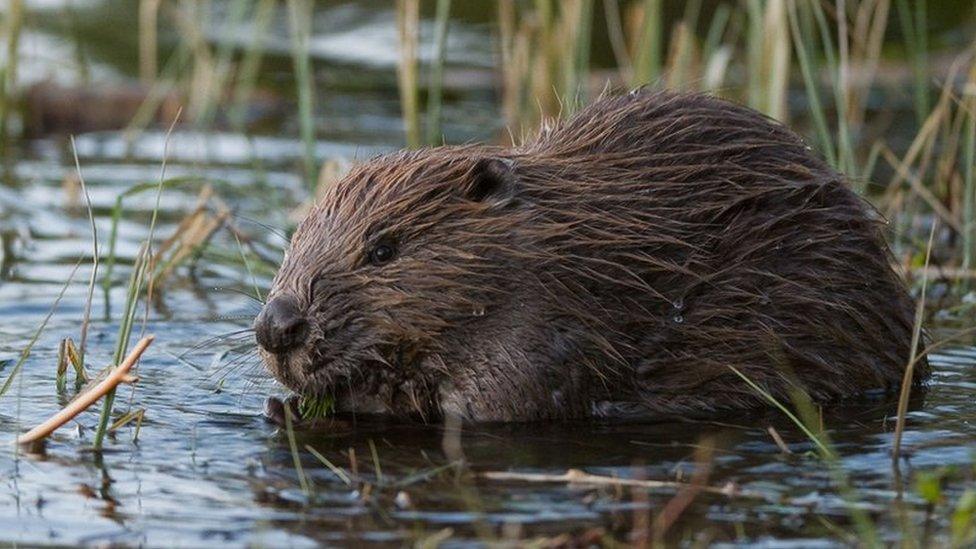
- Published3 October 2019
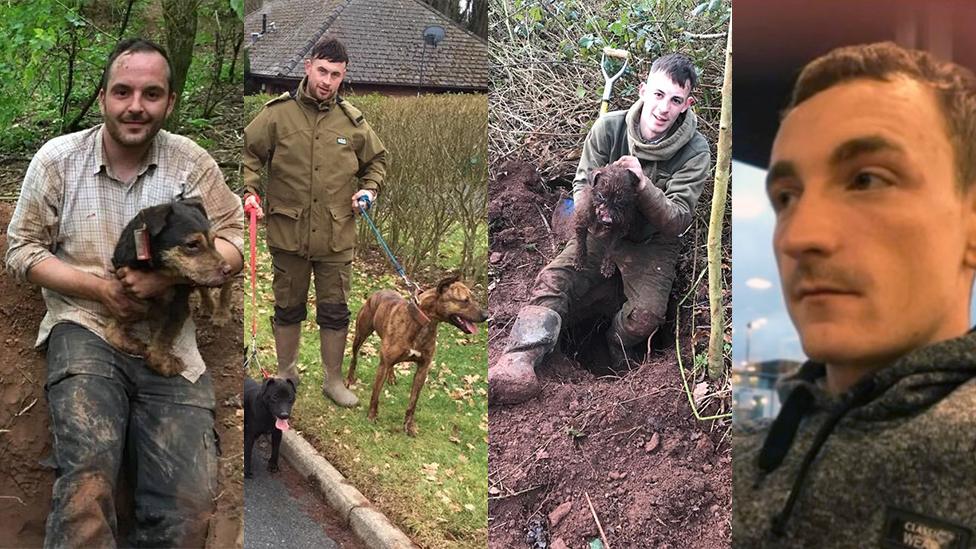
- Published1 June 2019
